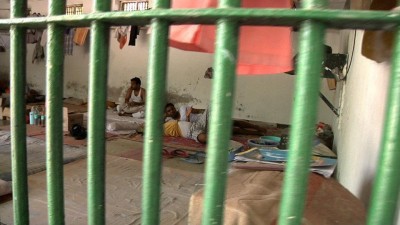New Delhi, Oct 20 : The Delhi High Court was informed by the jail authorities on Tuesday that 2,318 prisoners involved in heinous crimes are out on interim bail.
It was submitted before the Court that 2,907 prisoners involved in minor crimes have also been granted interim bail.
The affidavit was filed before a three-judge bench of the Delhi High Court presided over by Chief Justice D. N. Patel and also having Justices Siddharth Mridul and Talwant Singh.
Delhi government’s senior standing counsel (criminal) Rahul Mehra informed the Court that as per the affidavit only six prisoners were infected by coronavirus but at present the number has come down to three. They are admitted in the Lok Nayak Jai Prakash (LNJP) hospital in the national capital.
Mehra submitted before the Court that the capacity of jails in Delhi is more than 10,000 while the number of prisoners in the national capital at present is nearly 16,000.
Mehra told the Court that 6,711 prisoners are out on interim bail or parole.
The bench was hearing an application filed by Amit Prasad, the Special Public Prosecutor (SPP) in the Delhi riots case.
The bench had earlier issued notice over the plea, seeking modification of the High Court’s earlier order, and sought details from the prison authorities about the number of Covid-19 cases inside three jails in Delhi — Tihar, Mandoli and Rohini.
“We would not permit the misuse of our orders and would revoke the extensions if the same is being misused,” said the Court while hearing an application seeking modification of the High Court’s July 13 and July 24 orders clarifying that its orders extending interim bail/parole would be applicable to everyone granted relief before or after March 16.
The application moved by SPP Amit Prasad had alleged that the two orders were misused by prisoners by seeking bail on grounds of family illness or some other similar reasons, instead of seeking regular bail, and then getting the same extended on the High Court’s direction.
“If they (prisoners) are misusing it, we will stop it and then let them suffer,” the Delhi High Court bench said.
Disclaimer: This story is auto-generated from IANS service.

